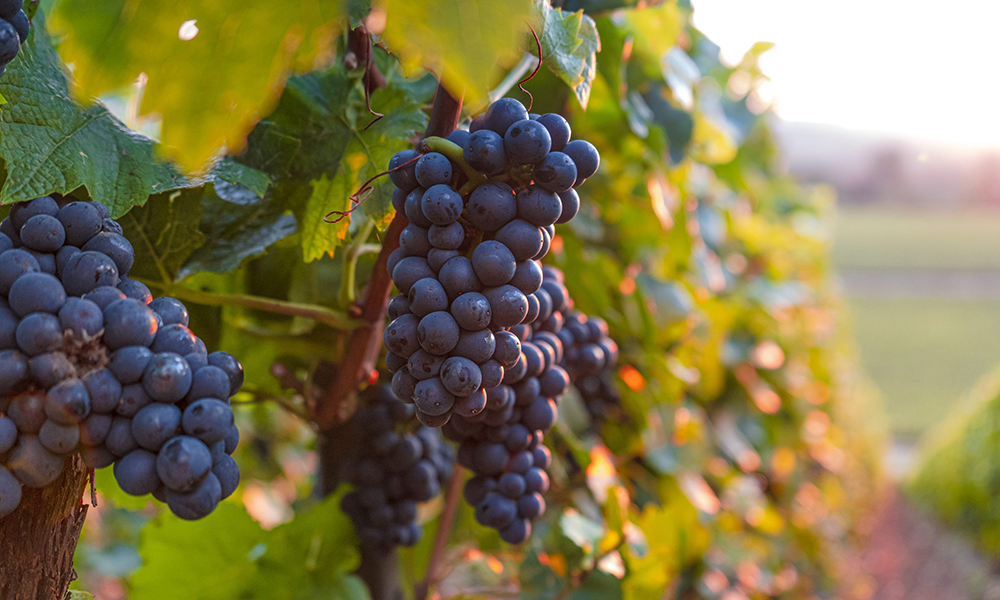
葡萄酒生产商辛苦劳作数月可不是为了将葡萄酒用于工业用途。但由于法国消费者对葡萄酒的需求下降、中国市场销售疲软以及出口市场竞争加剧,今年法国将出现上述情况(葡萄酒蒸馏成工业酒精)。
据英国《金融时报》(Financial Times)于8月27日报道,在欧盟的帮助下,法国政府计划将“蒸馏援助款项”拨款规模扩大至约2.15亿美元,其中的大部分援助将用于波尔多和朗格多克地区。这一过程包括把积压的葡萄酒蒸馏成乙醇,然后用于各种工业用途,包括制成香水、清洁产品和水醇凝胶(洗手液)。
据英国《金融时报》报道,法国农业部的部长马克·费斯诺于8月25日在参观一家酿酒厂时表示,政府旨在提振葡萄酒价格,并帮助酿酒商“找到新的收入来源”。他补充道,农民必须“适应消费的变化,并根据未来的需求调整生产”。
在另一项计划里,农民因为毁坏葡萄园、将土地转为林地并休耕而获得补偿。据英国《金融时报》报道,在波尔多,约有1,000名农民参与了这项计划,导致该地区约8%的葡萄藤被拔除。其他公共基金帮助葡萄种植者改种其他农作物,包括橄榄。
据英国广播公司(BBC)在8月底报道,根据欧盟委员会(European Commission)的数据,截至今年6月,整个欧洲的葡萄酒消费量都有所下降:意大利下降了7%,西班牙下降了10%,法国下降了15%,德国下降了22%,葡萄牙下降了34%。与此同时,整个欧盟的葡萄酒产量却增长了4%。
与能源价格飙升和俄乌冲突有关的生活成本危机也对该行业造成了冲击,这促使许多欧洲购物者开始勤俭持家,减少在非必需品上的支出。与此同时,精酿啤酒和其他饮品的竞争也日益激烈。
与价格低廉的葡萄酒相比,高端葡萄酒的需求更为强劲,因此法国的一些生产商选择转向高端市场,而不是将土地转为其他用途。今年2月,路威酩轩集团(LVMH)旗下的葡萄酒和烈酒部门酩悦轩尼诗(Moët Hennessy)将普罗旺斯红葡萄酒生产商美纽缇酒庄(Château Minuty)纳入其奢侈葡萄酒品牌组合。
据英国《卫报》(Guardian)报道,这并不是欧洲第一次出现“葡萄酒湖”。2005年前后,在补贴刺激下,葡萄酒生产过剩,促使欧盟改革其农业政策。(财富中文网)
译者:中慧言-王芳
葡萄酒生产商辛苦劳作数月可不是为了将葡萄酒用于工业用途。但由于法国消费者对葡萄酒的需求下降、中国市场销售疲软以及出口市场竞争加剧,今年法国将出现上述情况(葡萄酒蒸馏成工业酒精)。
据英国《金融时报》(Financial Times)于8月27日报道,在欧盟的帮助下,法国政府计划将“蒸馏援助款项”拨款规模扩大至约2.15亿美元,其中的大部分援助将用于波尔多和朗格多克地区。这一过程包括把积压的葡萄酒蒸馏成乙醇,然后用于各种工业用途,包括制成香水、清洁产品和水醇凝胶(洗手液)。
据英国《金融时报》报道,法国农业部的部长马克·费斯诺于8月25日在参观一家酿酒厂时表示,政府旨在提振葡萄酒价格,并帮助酿酒商“找到新的收入来源”。他补充道,农民必须“适应消费的变化,并根据未来的需求调整生产”。
在另一项计划里,农民因为毁坏葡萄园、将土地转为林地并休耕而获得补偿。据英国《金融时报》报道,在波尔多,约有1,000名农民参与了这项计划,导致该地区约8%的葡萄藤被拔除。其他公共基金帮助葡萄种植者改种其他农作物,包括橄榄。
据英国广播公司(BBC)在8月底报道,根据欧盟委员会(European Commission)的数据,截至今年6月,整个欧洲的葡萄酒消费量都有所下降:意大利下降了7%,西班牙下降了10%,法国下降了15%,德国下降了22%,葡萄牙下降了34%。与此同时,整个欧盟的葡萄酒产量却增长了4%。
与能源价格飙升和俄乌冲突有关的生活成本危机也对该行业造成了冲击,这促使许多欧洲购物者开始勤俭持家,减少在非必需品上的支出。与此同时,精酿啤酒和其他饮品的竞争也日益激烈。
与价格低廉的葡萄酒相比,高端葡萄酒的需求更为强劲,因此法国的一些生产商选择转向高端市场,而不是将土地转为其他用途。今年2月,路威酩轩集团(LVMH)旗下的葡萄酒和烈酒部门酩悦轩尼诗(Moët Hennessy)将普罗旺斯红葡萄酒生产商美纽缇酒庄(Château Minuty)纳入其奢侈葡萄酒品牌组合。
据英国《卫报》(Guardian)报道,这并不是欧洲第一次出现“葡萄酒湖”。2005年前后,在补贴刺激下,葡萄酒生产过剩,促使欧盟改革其农业政策。(财富中文网)
译者:中慧言-王芳
Wine producers do not toil for months so that their wine can be put to industrial uses. But that nonetheless will happen in France this year thanks to falling demand for wine among French drinkers, weaker sales in China, and greater competition in export markets.
With EU help, the French government plans to spend about $215 million to pay for “distillation aid,” as the Financial Times reported on August 27, with most of the assistance going to the Bordeaux and Languedoc regions. The process involves distilling excess wine into ethanol, which can then be put to various industrial uses, including the manufacture of perfume, cleaning products, and the hydroalcoholic gel found in hand sanitizers.
On August 25, Agriculture Minister Marc Fesneau said during a distillery visit that the government aimed to shore up wine prices and help winemakers “find new sources of revenue,” the FT reported. Farmers must “adapt to changes in consumption and adjust production to the demand of tomorrow,” he added.
In another program, farmers are compensated for destroying vineyards, converting the land to woods, and leaving it fallow. In Bordeaux, about 1,000 farmers have participated, leading to the removal of about 8% of the region’s vines, the British paper reported. Other public funds help grape growers switch to other products, including olives.
As the BBC reported at the end of August, wine consumption has fallen across Europe—including by 7% in Italy, 10% in Spain, 15% in France, 22% in Germany, and 34% in Portugal—for the year to June, according to European Commission data. Meanwhile, wine production across the bloc rose 4%.
Also hitting the sector is a cost-of-living crisis—linked to soaring energy prices and the Russian invasion of Ukraine—that has spurred many European shoppers to become more frugal and spend less on nonessential items. Meanwhile craft beer and other drinks have presented increasing competition.
But demand for high-end wine has held up better than the more affordable variety, so some producers in France have opted to move upmarket rather than convert their land to something else. In February, Moët Hennessy, the wine and spirits division of LVMH, added Provence rosé producer Château Minuty to its portfolio of luxury wine labels.
As the Guardian reports, this isn’t the first time Europe has suffered a “wine lake.” In the mid-2000s, the overproduction of wine, stimulated by subsidies, prompted the EU to reform its farm policies.






